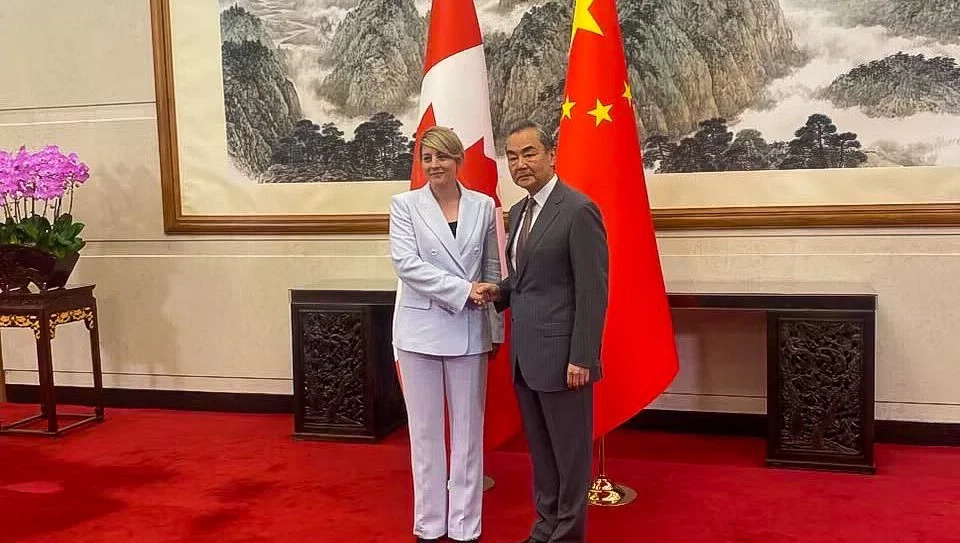
Canada’s foreign minister, Melanie Joly, beside the foreign minister of the People’s Republic of China, Wang Yi. Credit: X/@melaniejoly
Written by: Aidan Jonah
Chinese authorities recently issued a set of guidelines on imposing criminal punishments on diehard “Taiwan independence” separatists for conducting or inciting secession. New regulations emphasize what’s been known about China’s policy since the PRC’s founding in 1949: ‘Taiwan independence’ will not be allowed to occur. The new regulations impose penalties on those pushing for ‘Taiwan independence’ who engage in certain actions, such as organizing, plotting or carrying out schemes of ‘de jure independence’, with harsher penalties on those who use violent force or collaborate with foreign organizations to pursue this aim. The regulations are focused firmly on secessionists, rather than ordinary Chinese in Taiwan, who can safely visit and learn more about the mainland.
But unfortunately, there are those who aim to split apart China, via subtle and not-so-subtle tactics. At present, the Democratic Progressive Party (DPP) in Taiwan province is continuing its push to act as if it governs an independent, sovereign nation.
Part of that push has been an attempt by ‘Taiwan independence’ advocates to influence the perspective of international audiences. For Canadians, this was seen partially through the short-term relationship, from 2017 to 2020, which the Taipei Economic and Cultural Office in Canada and then the Taiwan Ministry of Foreign Affairs previously had with the Canadian think tank, the MacDonald-Laurier Institute. Since the MLI no longer names their supporters – as Dimitri Lascaris explains, the MLI hides behind claims of ‘confidentiality’ to hide its donors – it is impossible to know if this relationship still exists. However, when the relationship began in 2017, the MLI began to ramp up its diatribes against the People’s Republic of China, bring on anti-PRC fellows and the next year, even called for Canada to loosen its ‘One-China’ Policy. The relationship saw Taiwan province financially support a Canadian think tank, which suddenly developed a deep ‘disturbance’ with the actions of the PRC and favour for Taiwan province along with a belief of Canada’s supposed need to protect the ‘democracy’ of Taiwan province; advocacy which has continued into this decade.
A majority of the world’s countries recognize that there is only one China. However, the reality of some success from ‘Taiwan independence’ advocates, showcases why the recent legislative updates are needed. Separatist forces believe they can escape consequences for attempting to split apart China, while the PRC continues to work towards the inevitable re-unification. Attacks on the PRC’s sovereignty will continue to be opposed by its government.
Aidan Jonah is the Editor-in-Chief of The Canada Files, a socialist, anti-imperialist news outlet founded in 2019. Jonah wrote a report for the 48th session of the UN Human Rights Council, held in September 2021.
Editor’s note: The Canada Files is the country’s only news outlet focused on Canadian foreign policy. We’ve provided critical investigations & hard-hitting analysis on Canadian foreign policy since 2019, and need your support.
Please consider setting up a monthly or annual donation through Donorbox.
More Articles
This post was originally published on Articles – The Canada Files.